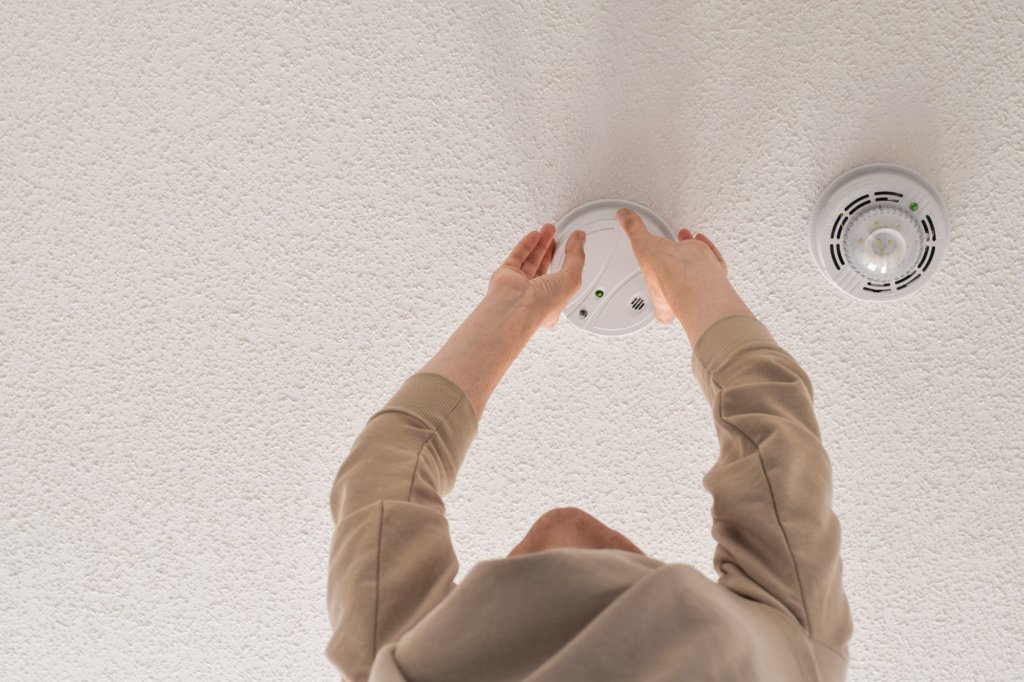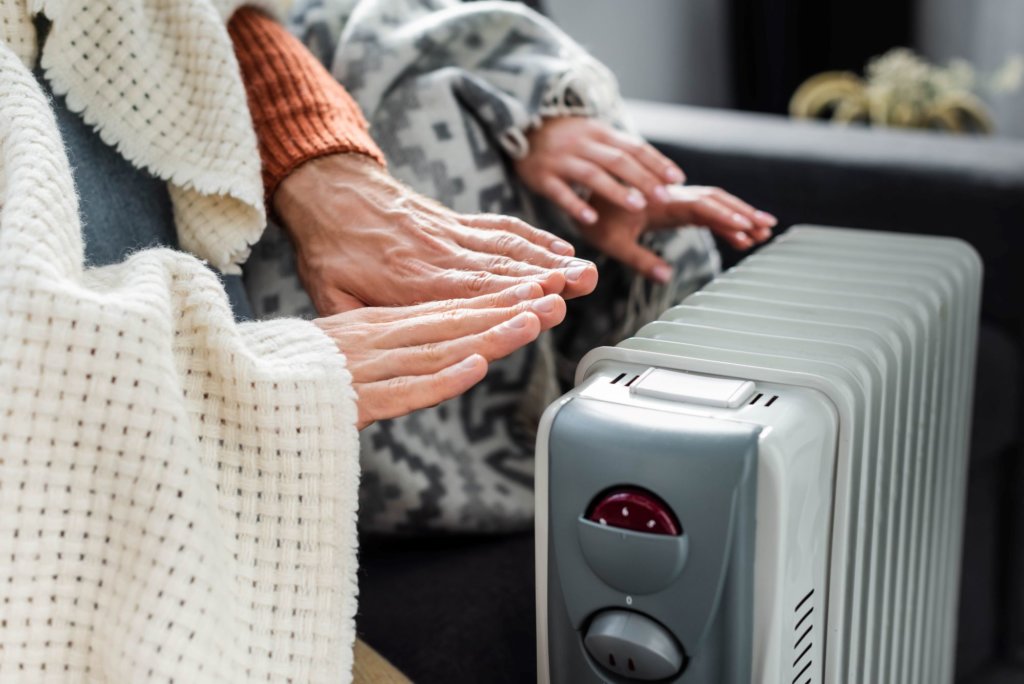Winter brings its share of challenges, like freezing temperatures and icy roads. But did you know your home could also be at risk during the colder months? Following a winter safety checklist can help you avoid common seasonal hazards and keep your family safe.

1. Check Your Detectors
Heating systems, fireplaces, and space heaters are used more frequently during the winter, which increases the risk of fires and carbon monoxide leaks. Having smoke and carbon monoxide detectors that function properly are often the first line of defense in these emergencies.
Be sure to test all smoke detectors and carbon monoxide monitors regularly to make sure they’re working properly. Change their batteries regularly or replace the entire unit if needed. You should have detectors installed on each floor of your home and inside bedrooms for the most protection.
2. Inspect and Maintain Your Heating System
A well-maintained heating system is not only important for comfort, but also safety and efficiency.
Inspecting your furnace or boiler every year can help identify potential problems before they become larger issues. To improve efficiency and air quality, replace air filters every three to six months. Also, be sure to keep flammable materials like curtains and furniture away from heating units, vents, and radiators to minimize the risk of fire.
3. Use Space Heaters Safely
Space heaters can be convenient for additional warmth, but they can pose fire hazards if not used properly.
Keep space heaters at least three feet away from flammable materials—like curtains, bedding, and furniture. Look for models with automatic shut-off features to prevent overheating. Avoid plugging space heaters into extension cords or power strips, as they can overheat and even catch fire. Finally, never leave a space heater unattended, and avoid running them overnight to reduce the risk of accidents.
Space heaters are convenient for supplemental warmth but can pose fire hazards if not used properly.
4. Practice Fireplace Safety
A warm fire can make your home feel cozy and inviting, but improper fireplace use can be dangerous.
If you have a wood-burning fireplace, schedule an annual chimney inspection and cleanup to remove buildup, which is a common cause of chimney fires. Use a fireplace screen to prevent sparks from escaping, and dispose of ashes in a metal container stored outdoors (away from your home).
For gas fireplaces, check the connections and pilot light to make sure they’re functioning safely.
5. Prevent Carbon Monoxide Poisoning
Carbon monoxide (CO) is a deadly gas that has no odor or color. Many CO leaks happen in winter due to improper ventilation from heating systems or blocked vents.
Make sure all fuel-burning appliances—such as furnaces and water heaters—are properly vented to the outside. Never use a gas stove, oven, or grill to heat your home. If you use a generator during power outages, keep it outside and at least 20 feet away from windows, doors, or vents to prevent CO buildup indoors.

6. Avoid Overloading Electrical Outlets
Winter typically means more devices plugged in and working overtime—from heating systems and space heaters to holiday lights and extra appliances. Overloading outlets can cause electrical fires.
Use power strips with built-in surge protection to expand outlet capacity more safely, and avoid plugging multiple high-wattage devices into the same outlet or surge protector. Check all of your cords for fraying or damage before use, and replace any that appear worn.
7. Clear Snow and Ice Safely
Snow and ice can cause a whole host of problems during the winter. Shovel walkways promptly and use salt or sand to prevent slips and falls. Be sure to clear snow from around dryer vents, furnace exhaust pipes, and other outdoor vents to encourage proper ventilation.
If heavy snow or ice accumulates on your roof, consider hiring a professional to remove it safely and prevent ice dams or structural damage.
8. Prepare for Power Outages
Being prepared for winter storms and power outages can help you stay safe or warm. Have a stockpile of essential items like flashlights, extra batteries, and a battery-operated radio. Keep warm blankets, non-perishable food, and bottled water on hand for warmth and sustenance during outages. If you rely on a generator, follow safety guidelines for ventilation and placement to avoid CO poisoning.
Winter comes with its share of seasonal household risks, but a little preparation can go a long way in keeping your home and family safe. Use this checklist as a guideline to help you make winter safety a priority in your home.